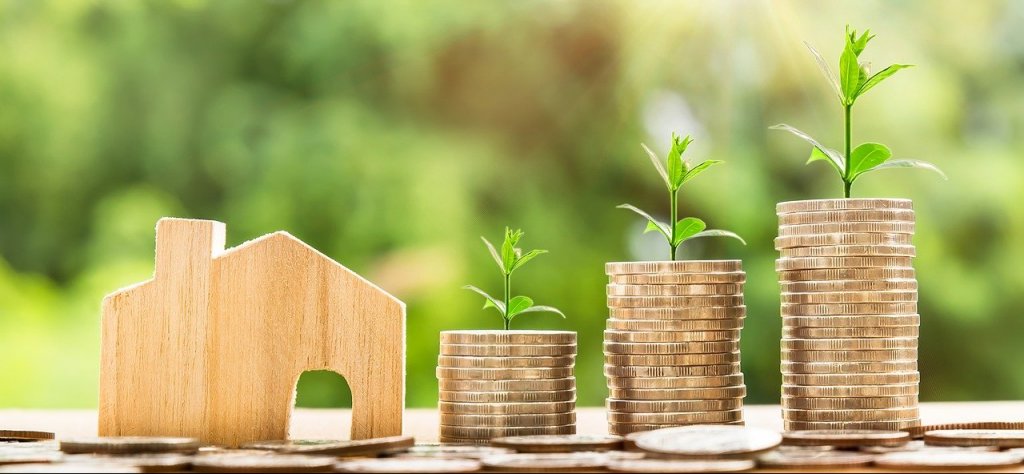
It’s surreal right now.
We’re in the middle of the Coronavirus COVID-19 pandemic. It’s a big deal.
Additional COVID-19 Articles:
- The Coronavirus Podcast Series: For Real Estate Investors & Agents
- How to Win with Content Marketing During COVID-19 – The Playbook Emerges
During this article, I’m going to be talking about how you cope with these major changes in the economy, real estate, and the way that we’re working and living and thriving.
Get Quick Context About This Blog Post Before Diving In…
Listen to the Full Podcast Episode Below
Make sure you subscribe to get the CarrotCast each week!
Now everybody’s going to be impacted in some way, shape, or form. But, you don’t have to be impacted negatively.
There are people that I know, businesses that I know, that are actually doing better than ever right now because they’re geared and they’re set up and they planned for things like this. Or, maybe they just got lucky and they have certain products, of course, that are just in high demand for these times.
I’m going to be talking about how to better prepare for what’s to come.
How Do You Come Out on the Other Side of This Stronger?

How do you as a real estate investor or agent plan and prepare for what is going to happen?
I’ll be the first one to admit that I didn’t treat this seriously enough early on. I thought, it’s just this, like a lot of people were saying right, it’s this cold, it’s this flu. The flu numbers kill more people than this is killing. And that was honestly just a full misunderstanding of how pandemics work, a full misunderstanding of how math actually works in these types of situations.
Preparing for the Financial Impact
The financial side is what I want you guys to prepare for. What happens with all the shutdowns? The shutdowns are where the devastating part is on the financial side because there’s the health side of it, which is a huge deal, but it’s going to likely be shorter-lived, months rather than years. The financial side though is where it gets really, really interesting and possibly scary for many people.
So if you have stay-in-place orders in California and Washington (now in Oregon) and all over the place, and kids are out of school here in Oregon until the end of April now rather than just spring break…
That leaves over a month and a half to where parents have to figure out a way that they can work at home while trying to take care of their kids still. We’ve got team members who have multiple kids at home, who are working and they’re trying to do their best work. So we’ve put policies in place to give our team members more flexibility and more leeway during these times. And we said, “We’ll take it two weeks at a time during the next two weeks.”
But, we’re not pumping the brakes.
This is when we actually need to hit the gas more than ever to help our customers more than ever, to help you guys wade through and win in this market.
And that’s where I’m going to come to next because there are so many people doing amazing right now still because so many people are pulling back and I’m going to show you guys exactly how to do that, but we need to be doubling down and helping you guys win even more right now, not pulling back ourselves and going, “Hey, let’s wait and see.”
Don’t Pump the Brakes… Give It More Gas
I think if you have a wait and see attitude, then you’re likely going to get impacted way more negatively than you wish.
We put in the policy, where for the next two weeks, put in the hours that you can. We don’t want you to have to make a decision between being a good father or mother and being a good worker. I would rather have you make the decision to be a good father or mother versus trying to fit in all 40 hours. So if you’re only able to get 35 hours of good work in, good focus work in, awesome. Report the full 40 during these next two weeks, and then we’ll take it two weeks at a time after that.
So if you’re an employer, find out ways that you can really help your team members wade through this. Help your team members have confidence in the way that you’re doing things…wade through it with them.
Next thing, if you’re an employer, you need to be doing weekly updates with your team members at the least. I did one last week, pulled up a bunch of slides and just walked through…
“Hey, here’s what we know about the pandemic so far.”
“Here’s how we can serve you, even more, to make working from home even better than we already have.”
Then the next thing was…
“Let’s go through the financial picture. Let’s go through how much cash reserves we have. How long could we run this business if some big things happen that cut our income by 10%, 20%, 30%, 40%, or 50%.”
Now, the 10% is realistic, 20% possibly. 50%, I don’t believe that that would happen, but there are cash reserves that we have and could survive and thrive with that.
I also covered hiring…
“But also here are the plans that we have. Are we going to be adjusting our Q2 plans of growth in our hires? Well, we’re taking some of our hires and moving them to contractor roles until this shakes out.”
We’re not stopping those hires because we need them. We need them to grow, we need them to help serve you guys better. But we’re moving them to contractors instead to kind of add that extra buffer in place.
So that’s another move that you can make. If you have any hires coming up, make them contractors instead of employees the next few months to see how things shake out.
Survive and Thrive

The next thing, I’m going to give you guys some really, really actionable steps. How do you wade through this, thrive, and survive?
The first thing is you have to have reserves.
Let’s look at the foundation level. The people that are going to be getting in trouble are the people that have been kind of running fast and loose the last three, four, five, six years.
Thinking that whatever their situation is, it’s going to go on forever in a good way and not stocking away reserves. So the one thing I’ve always had pretty good discipline in, and then we carried it through the previous years as well, is carving out reserves.
Every quarter we look at our profits and I always set how many months of cash reserves we want for operational expenses for the business. And some people suggest three months, six months a year. I suggest six months is what every business should have in operational cash.
What I mean by operational cash is, what does it actually cost you to run your business? If all of your revenue disappeared, what does it cost you to run your business?
That includes all of your employees, any of your fixed expenses, things like that. Add that up for six months. And then I think that’s what you should have in your bank account for reserves.
As I said, the likelihood that you’re not going to bring in any cash for six months is very low, but at least it gives you breathing room.
Now it gives you time to pivot and adjust and change course if you need to. If you only have a month or two or three months, you’re in crisis mode at that point. You can’t really get very crazy creative and have time to really pull back, think, and pivot. You won’t have the luxury of planning a little bit.
Building Reserves Now

What can you put in place right now to ensure that you’re building up your reserves?
Do that now. Start to stock away cash and start to build up that six months reserve. Do the same thing on the personal side. Start to stock away more cash than you normally would right now. Build it up in reserves, six months, personal expenses, your mortgage…
What does it cost you to live on a personal basis? Do that. The next thing is even if you don’t predict a downturn in your business, start to cut expenses.
Start to look at things like that because we want to plan for the worst, but hope for the best. Okay, plan for the worst, hope for the best. And those of you that are not taking this seriously enough are going to be bitten in the butt in several months possibly.
Now we hope not. But as I started to dig into this, the financial ramifications when parents are staying at home and when businesses are closing, all of a sudden unemployment’s going to go from 3% to 5%, to 20% for the next month or two and unemployment benefits rush in there.
Then all of a sudden you have some people that aren’t able to pay their rent. So what happens to landlords during this time? Well, some landlords might struggle to pay their mortgages because some of their employees might be restaurant workers. They might be workers that are having their position shutdown and they might not be able to pay their rent.
What if you’re landlord, that’s over-leveraged, that doesn’t have cash reserves for a while? That now can’t pay your mortgage. So now you’re going to go behind in your mortgage and then all of a sudden, let’s say a bunch of landlords start to default on their mortgages three months from now or two months from now, then you have some sort of banking issues as well.
The Economy

Now is it going to be the same as what happened back in 2008? Let’s dive into some economic stuff right now.
The likelihood that that is going to happen is extremely low. They’re just totally fundamentally different factors that are happening in the economy right now.
Back in 2001, 9/11, what happened was that it was an event, a terrorist attack, that completely wrecked the economy for a period of months. And it wasn’t because there was something fundamentally wrong with the economy. This event wasn’t a bubble…
But, there was the .com bust that happened several years before that. That was something fundamentally wrong with the economy. There was way too much over-investment in the tech world. No one knew what it was. Too many IPOs that were too overhyped. And there was a bubble that popped.
9/11 an event that was a black swan event. Kind of like this pandemic where it’s outside of most people’s control. It’s not something that you could really easily plan for very well. But it does impact things vastly.
After 9/11 people basically stopped traveling. And when people stop traveling, that sort of decimated the travel industry. Hotels, airlines, the same thing that’s happening right now, which then trickled down into everything else, unemployment rises.
But all that didn’t last for too crazy, crazy long. Go back and look at the history books. Some of it lasted for the course of the year. The travel industry took a little while to recover, that’s for sure. Some stuff bounced back within months. But the overall economy, the stock market did take a hit, but real estate prices continued to appreciate actually.
So real estate prices did not depreciate, they continued to appreciate. That is a little bit different though because that was coming out of the stock market crash, the tech bubble of ’98, ’99, 2000.
Things had already started to kind of improve there a little bit. The difference here is we’re at the end, almost overdue of a bull cycle the past 12 years in the stock market and real estate market.
All these things have been amazing for the past 12 years. And for the past couple of years, I’ve been preparing Carrot and my team for a recession. We don’t know when it’s going to happen, but arguably the current policies are helping to prop up the economy longer than I think it should have been.
Bubble?

So is that creating a bubble? Possibly.
There could be some things there, but this black swan event of the pandemic now started to kick it forward, started to kick it down the curb. I do believe that this will kick off some sort of a step into recession.
Now, will this recession be like it was in 2008? I don’t believe so.
Once again, it doesn’t have the same fundamental economic issues there that the mortgage crisis created. And also, the issue of this time has not related to real estate per se.
The issue last time was directly related to the real estate market being overheated. Too many people buying properties that shouldn’t because it was way too easy to get loans.
We’re not seeing that right now. I don’t predict that real estate prices will take a crash because they haven’t been overinflated as much as previously.
Now, will we take a little bit of a dip in prices? I think so. I think toward the end of the year you might see some markets start to slow down a little bit, but I think it’d be more of a softening.
How Real Estate Agents Have Shifted
In the short term, I’ve been talking with lots of agents about what they’re seeing, what are they experiencing in their world.
The experienced ones aren’t missing the beat.
Some have turned to doing virtual showings now over Zoom or Facebook Live instead of having big open houses. They invite everyone to tune into their Zoom room during a certain time and they walk around the house and they talk about it. And then they give people a tour. They’re still showing houses.
One agent said that there have been buyers who still want to buy but they’re going to kind of tap the brakes and wait this out a little bit. There’s also been a seller or two who didn’t want to have a bunch of people going through their house during this time, which is understandable, but they said, in general, they’re still closing the houses. They closed six houses last week alone.
What a lot of other people are kind of using, they’re letting fear stop them from doing this. They’re assuming because all this stuff is happening, then real estate is not working. That none of this is going to continue to work.
That’s just not the case. That’s just not the case at all.
For more information about the coronavirus and realtors, check out this guide.
How Real Estate Investors Have Shifted
Talking to investors, yes, some are worried about their portfolios because they have so many renters that are lower income. That should be an issue. You should be tight. You should be getting as much cash liquidity right now as you possibly can, just to plan for the worst, hope for the best.
But for people out there flipping houses, wholesaling houses, buying houses, things like that, we’re not really seeing much of a slowdown. Now there are some municipalities that are closed down or they’re not processing transactions.
I talked to Cody Sperber down in Phoenix, Arizona last week. He’s coming out for a podcast issue for CarrotCast here shortly. Cody did say that he had a transaction or two canceled at escrow, but what we’re seeing is more around the financers. It’s more on funding. It’s more on the private lenders that are pulling… They’re tapping the brakes a bit.
Let us wait and see this out. Let us dampen our risk in this process. And let’s wait for a month or two before we start to deploy cash, so that’s what you are going to see some private lenders doing that.
Now, how do you contend with that?
Well, number one, you need to be going to your private lenders if you’re a house buyer, and talking with them and educating them on what opportunities there are in the market and how you’re safeguarding their investments.
Go to them right now and talk. Do a Zoom call with your investors and talk to them about the market, about what you’re seeing on the ground, about what other investors are seeing locally, about how you’re going to safeguard in their investment during this time, but also about the opportunity that there is going to be, in this time, to add more value and have them get even greater returns.
That needs to be done. You need to be reaching out to your investors right now to continue to build that relationship, to continue to build that trust and credibility with them so they’re comfortable in these crazy times.
The next thing, if you’re a flipper or a wholesaler is, there’s so many of you who are tapping the brakes on your marketing and you’re going, “I’m going to wait this out.”
That is insane right now. That is the worst thing you can possibly do.
Here’s Cody Sperber’s Game Plan During the Current Situation…
You Have an Audience Right Now
Right now you have some of the biggest captive audience possible out there for people to see your marketing message. Mail is still being delivered. There’s no plan, it doesn’t seem, for mail to stop being delivered. Phone calls are still being answered. Even more now so, because people are at home and possibly home from work.
People are going online and still doing the searches.
In some categories, they’re doing more searches than they were before. For house sellers, we saw a dip a couple of weeks ago. We’re going to look at the data and see. It’s barely, it’s like 10% or so.
According to a recent WordStream study, search traffic in the real estate industry remains relatively stable, as well as little change to search volume, CPC, or conversion rates.
But as we move into the next two or three weeks, some important shifts could have some important industry consequences.
What Can You Expect?
What I predict is people looking for investment properties might be kind of pulling back some of their demand right now.
I predict while in that first phase of the pandemic fear to happen, I think a lot of people will pause just because they don’t know what else to do. They’ll pause out of fear, they’ll pause meaning, “I want to wait a little bit to see what happens before I sell my house.”
But here’s the deal. If they start to have income issues, if they already had an issue with the property they’re needing to sell, and now he gets exacerbated with the economy, what’s only going to happen now is as the weeks go on…
That pain is going to actually increase.
So, if you’re an agent or if you’re an investor, you need to be out there solving people’s pain. This isn’t about taking advantage of people. There’s not one lick of that here.
What we need to be doing, as a society, is finding out how can we solve people’s pain.
How can we truly solve problems? How can we truly add value to people’s worlds right now when they need it the most and some people need it right now more than ever?
Right now is not the time to hit the brakes, right now is not the time to pull back and say, “I’m going to wait and see it out.”
Right now is not the time to pull your marketing back, right now is actually the time to double up on your marketing and increase your spend on marketing.
I was talking to Christina Krause, one of the biggest direct mail marketing consultants for investors and she said her three biggest clients have made their largest purchases ever with her these past two to three weeks. That says a lot!
So why is that? Because what they’re doing is there’s a lot of print houses, mail shops and things like that, that might be shutting down for business for a while, if there is a stay-at-home, a stay-at-place order. And a lot of those shops might be in California or some other states where they’re doing stay-at-home orders.
Get your orders in right now… To get your mailing pieces printed off before any stay-at-home orders are done.
Make those big orders and then pull back. The post office doesn’t seem like they’re shutting things down. Could that change? It could.
Make those orders, get your direct mail pieces in because what happens if you try to place your order and then they’re slowing down business for two weeks, all of a sudden you’re two to three weeks behind, maybe even four weeks behind because now they have a stockpile of orders they need to process.
You’re two to four weeks behind on getting mail out to people when they need it the most. Then those who are getting mail out consistently and often during these times are going to come out the other side winning.
Those who are going and looking at their Google PPC costs and saying, “Hey, there’s people.” What you’re going to see right now is people diminishing or stopping their PPC, their spend.
You’re going to see people stopping their PPC spend because, out of fear, because they’re seeing, “oh my gosh, my click cost is $45 a click or $25 a click and my leads are $300, oh my gosh.” But that’s if you’re trusting emotion, not math.
You need to go back to the fundamentals we’ve been teaching for years…
TRUST MATH NOT EMOTION

If your average profit per deal is $20,000, your for-average-commission per deal as an agent is $10,000 and as an investor, let’s say, after that $20,000 profit, it takes you 10 inbound online leads through PPC or through SEO to close the deal, which is about average, right around there, 10 to 15.
I would just about average, the highest lead to close ratio you can get with any lead. Any lead, as an agent and an investor, so if you’re closing one in 10 and your average property is $20,000 and you’d be willing to trade $5,000 to get that $20,000 deal done in marketing, that means you can pay up to $500 per lead and win the market.
And there are so many people cutting and killing their pay-per-click at $150 a lead, at $95 a lead at $225 a lead, because their neighbor over here is getting leads for $22 or $5 on Facebook or because they’re fearful.
Right now is when you need to actually look at your numbers again and say…
“I’m going to double down on this. I’m going to spend even more. I’m going to make sure I’m answering these phone calls quicker.”
Stay in front of those sellers and help serve them even better. Make sure to give them multiple different offers.

Just like on the Carrot Summit, Eric Young, one of our members in Denver, he goes out with three offers.
Can you imagine if, in this market right now, where there’s a lot of things happening and there are people who are wanting to sell, a guy like Eric comes in and says,
“Hey, here are three options…
#1…List it for the most money in your pocket.
#2… I can pay cash, but it’s going to be a discount, but it’s immediate and you don’t have to worry about repairs or anything.
#3… Or, I see there’s an opportunity to renovate your kitchen and your bathroom and add $60,000 in value with a $20,000 investment. I will put in the $20,000. I’ll bring in my construction crew. Then afterward, you and I will split the difference between the equity that was gained…
…On that extra equity where it’s going to add $50,000 in extra equity, I’m going to get my $20,000 back for the renovations, which leaves $30,000 left, and we’re going to split that. You’re going to get $15,000 extra over and above what you would’ve got if you’d have just listed it as is. I’m going to get $15,000. Then I’m also going to get the listing over here for the rest of the principle. Okay?”
Be Creative Right Now

Here are three things I want you guys to do right now.
First, create reserves for personal and for business.
Make sure you have six months reserves in the bank. Now, if you don’t have six months reserves in the bank, then should you freak out? No, but you should prepare for it. You should pull back and go, “What expenses can I trim right now where I can start to build up more reserves?”
Stop spending on the ice cream. Stop spending on things that don’t matter. Cut the Netflix subscription for awhile. Whatever you have to do, start building up cash reserves, not just for the pandemic, but if a recession does kick in, there’s always amazing opportunity, but only for those who are prepared, only for those who actually are ready for capitalizing on this opportunity with cash or with partners who have cash.
Second, go out there and start building relationships with private investors.
Start to build relationships with those private lenders because those people are the people that have been piling cash for years, and they want opportunities in the market when those opportunities arise.
Start to build relationships with people that are well-off in your area. Ask them about what their plans are, tell them about what you’re doing in real estate, and start to get them interested in it.
Don’t ask them for money, but if you talk about what you’re doing enough, they will be interested, they will ask you, and they will say, “Hey, yeah, that sounds amazing. Let’s chat about it.” Okay? How do you make sure that you are being proactive in building those relationships right now?
Third, grow during these times.
I don’t want you to pull back. I talked about before how there’s going to be a lot of people who are going to be doing the, “Let’s sit and wait.”
There’s going to be a lot of people who are doing the pullback and like, “I’ll pull back out of fear because I don’t know what’s going to happen.” Now is NOT the time to pull back, NOT the time to pull back business strategy-wise, NOT the time to pull back investment-wise and marketing.
Right now is the time to double down. If you’re an agent, get a darn Zoom account and start talking with your customers over Zoom. If you’re a personal trainer, start to do personal training from home with Zoom. Get creative right now, guys. Don’t hit the brakes on that stuff.

3 FREE Resources to Build Healthy Habits
What I want you guys to do is grow personally right now.
Understandably, there are many people who are unsure and worried right now. But, don’t treat this as a vacation. This is not the time to treat this as a vacation.
Now is not the time to say, “Hey, this is where I can lighten up my load.” Now is the time when you need to get really diligent and grow personally. Read personal growth books.
This is the time when you need to actually double down on your learning. This is the time when you actually needed to take courses or focus on family.
We need to be more diligent, which means acting more decisively, which means less wasting our time, which means tackling an opportunity that’s in front of us and not doing the sit and wait.
It means being innovative and being creative and adding more value than you’ve ever, ever added in your business ever before.
Don’t pull back. Step in. Lean into this. Be healthy. Stay away from people if you have to, but get creative. We’re going to weather this with you. We’re insanely positive about this. Agents and investors are not stopping their transactions right now.
They’re still meeting with sellers physically or over Zoom. They’re still meeting with a buyer physically or having open houses over Zoom. Investors are doing the same.
Investors are doubling down on their marketing right now because they need to get that marketing out for the next three, four, five, six, seven weeks while people are really needing your services now more than ever.
They’re not pumping the brakes.
This is where you need credibility in your business more than ever right now. You need credibility. You need online credibility. You need performance from your Carrot system.
I’ll give you guys another update in the next week or two on pandemic stuff and how you can really strategically go out there and market better and differently and how you can change your business to work more remotely during these times.





Another great episode! The Carrot team has helped my business position for this type of situation. I couldn’t be more grateful to this amazing group of people. 2 years ago I set out to transform my business into a more agile business. We became Investor Agents. At the time we realized more and more agents were flooding the market, which was a sign of a peak. Instead of fighting for market share as Realtors we added investing. Investing in Real Estate was our true passion anyhow. It was an easy switch. The hard part was wading through the mass amounts of information to get us there. We found carrot and signed up. I remember thinking I just like the way these people think! I like how the team at Carrot treats me and answers questions even before I purchased anything. Now I sit here 2 years later with a small and thriving business that I feel confident about even during this time. We are moving forward with our projects and will continue moving down this path with doing real estate listings and buyer purchases and buying to fix & rent or sell. There are a few companies that I don’t see as just a product or service I buy. I see them as part of my team. I see them this way because of how they add so much value. Thank You so much Carrot!
Robert! I love it man!
Going against the grain early helps you win over the long run. It’s not easy! It’s easier just deciding to just be an agent or just be an investor in the short-term.
But long-term both of those models are going to be harder and harder to do without the other.
Go get ’em man!
We appreciate you!